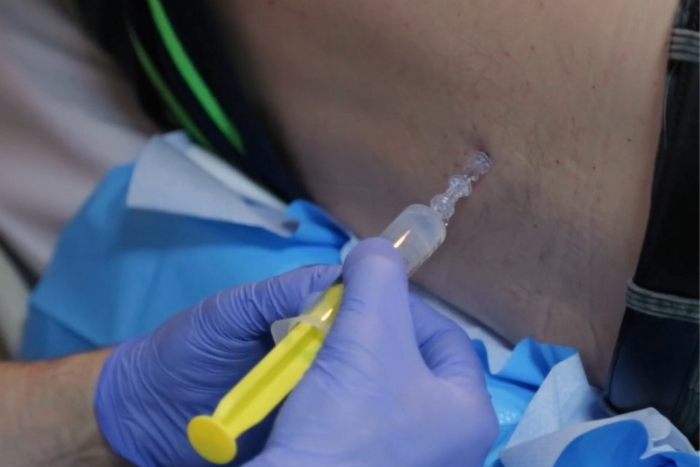
A genetically targeted treatment for motor neurone disease developed by Biogen has slowed the progression of the disease in a clinical trial and even improved the symptoms of some patients.
The US company’s drug tofersen targets a defective gene called SOD1, which causes about 2 per cent of cases of MND, also known as amyotrophic lateral sclerosis or ALS in North America.
Although only a small proportion of the 140,000 new MND cases diagnosed worldwide each year could benefit from tofersen, experts on the disease welcomed the results as a potential turning point — the first convincing demonstration of a treatment affecting the progression of the disease that otherwise involves inexorable neurodegeneration.
“I have conducted more than 25 MND clinical trials and the tofersen trial is the first in which patients have reported an improvement in their motor function,” said Pamela Shaw, professor of neurology at Sheffield university and leader of the UK arm of Biogen’s clinical study.
“Never before have I heard patients say: I am doing things today that I couldn’t do a few months ago — walking in the house without my sticks, walking up the garden steps, writing Christmas cards.”
Initially, the phase 3 trial failed to achieve its primary endpoint of significant clinical improvement after six months’ treatment with tofersen, although levels of harmful proteins in patients’ blood caused by SOD1 mutations fell substantially in that time.

The benefits to patients’ motor and lung functions only became clear when the study was extended to a year. The 12-month results were published on Wednesday evening in the New England Journal of Medicine.
Anticipating the positive results, Biogen applied to the US Food and Drug Administration in July for approval to market tofersen to treat MND patients with a SOD1 mutation. The FDA expects to complete its review by late January.
At the same time, the Massachusetts-based company is making the drug available under an “early access” programme to patients in more than a dozen countries.
Tofersen is administered through a monthly lumbar puncture into the spine, so that it can get past the blood-brain barrier. “That sounds unpleasant but it isn’t when done by skilled hands,” said Chris McDermott, professor of translational neurology at Sheffield university. “It’s similar to an epidural injection during childbirth.”
Brian Dickie, director of research at the MND Association, the UK patients’ charity, said: “These latest results provide mounting confidence that tofersen is having both a biological and a beneficial clinical effect in people living with SOD1 MND. They also provide important ‘proof of concept’ that similar gene therapy-based approaches may be helpful for other forms of the disease.”
At least 30 other genes are known to predispose people to MND. The speed of neurodegeneration varies greatly between individuals but average life expectancy is three to five years from onset of symptoms.
Biogen is recovering from the launch of its controversial Alzheimer’s drug Aduhelm. Doctors and health officials doubt whether it was clinically effective enough to be worth prescribing.
But the company remains one of the most active in research and development for disorders of the brain and nervous system, including Parkinson’s disease, multiple sclerosis and depression as well as MND.